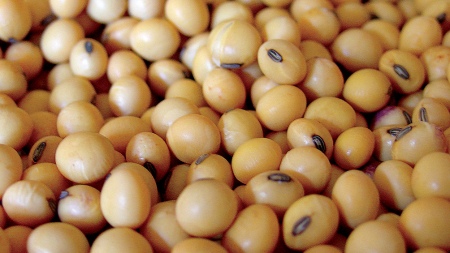The national deputy of the Frente de Todos (FdT) for Entre Ríos, Marcelo Casaretto, highlighted this Saturday that the reopening of the Export Increase Program (PIE), also known as the “soybean dollar”, will allow reserves to be strengthened, bringing them to a range of “ around US$ 13,000 million to US$ 15,000 million” thus removing “the possibility of a general devaluation”.
The new edition of the PIE, announced on Friday by the Minister of Economy, Sergio Massa, and which will be in force from this Mondayestablishes a differential exchange rate for the soybean complex of $230 per unit.
According to the Secretary of Agriculture, Juan José Bahillo, the program –carried out based on an agreement with the cereal companies- “has a guaranteed and signed floor of US$ 3,000 million” of currency settlement throughout December.
“I believe that today Sergio Massa as Minister of Economy has the responsibility of stabilizing the national economy, for which he has to strengthen the reserve scheme and generate some mechanism,” Casaretto said in dialogue with El Destape Radio when asked about the new measure. noting that, when Massa took office last August, “virtually the net reserves were scraping the bottom of the pot.”
In this sense, the deputy emphasized that The previous edition of the PIE, which took place in September, “allowed US$8,000 million to enter in liquidation and stabilize the economic situation in Argentina.”
“Theoretically, this second stage would have to release around an additional US$3 billion, and I think a little more,” Casaretto estimated.
In this way, the legislator calculated that, at the end of the year and taking into account the recent expansion of the currency swap with China, reserves would be in a range of “around $13 billion to $15 billion.”
This – he stressed – removes the possibilities of “a general devaluation” and, therefore, “of a resurgence of inflation and an impoverishment of the sector of workers and retirees”.

“Some like it more, some like it less, but I believe that this stage of the ‘soybean dollar 2’ is absolutely necessary for stability in the macroeconomic issue,” said the member of the Lower House and president of the Industry Commission. , and recalled that the economy “actually works based on economic incentives.”
After which, he stressed that Argentina “grew last year, grows this year and will grow next year”, something that -he indicated- did not happen “15 years ago”.
“All the companies are investing and want more dollars for imported inputs or for one more machine,” he said.
In this sense, Casaretto affirmed that “there have never been as many dollars as now”, because “Argentina has never exported as now in history.”
“Last year we exported US$ 78,000 million and this year, as of October, we are already reaching those values. So by the end of the year we are going to be above US$90 billion,” he projected.
For Casaretto, the solution to currency problems comes from a greater trade surplus, and he stressed that, since his commission, “all the laws that we are dealing with in industrial matters have the objective of promoting investmentthat is to say, that foreign investments come and bring dollars, or that the Argentines who have saved dollars put them to produce”.
In the same way, he pointed out -based on a government projection- that the war between Russia and Ukraine cost the country “US$ 5,000 million in energy imports due to the increase in prices”.
“With the Gas Pipeline (Néstor Kirchner), if we manage to finish it in June, before the winter season, we are going to save that,” he estimated, and projected that the country, “in a few years,” could go from being a “net importer to a net exporter” in energy matters.
















